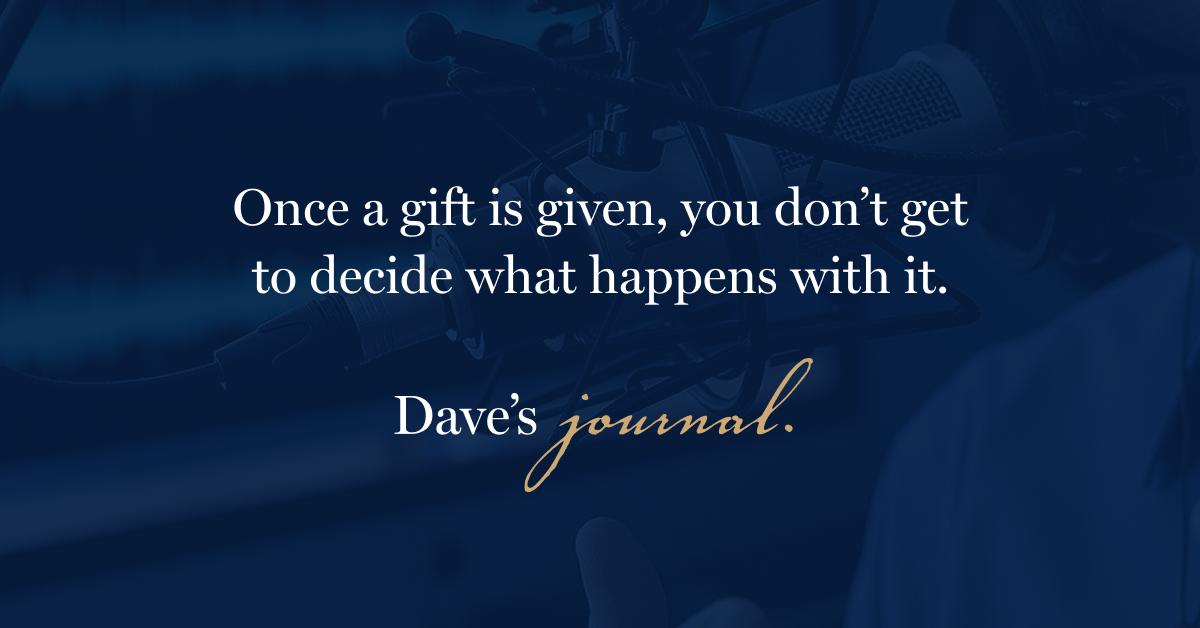When I was about six years old, my dad bought a Tandy 1000 computer from Radio Shack as a Christmas gift for our family.
I remember learning how to use the floppy disks, how to connect the dot matrix printer, and the intricate details of swapping memory boards to upgrade from 128K of memory to 256K.
We spent countless hours playing games, learning MS-DOS, and occasionally pulling our hair out in frustration as we navigated this new world of personal computing.
It spurred my interest in using technology to make our lives better. Without it, I’m not sure I would have ever gotten as excited about technology or ever used to reach others as much as I do today.
My dad’s intention behind this gift was great: introducing us to technology that was likely to be a part of our future. The context was right too: I was just old enough and it was Christmastime.
My dad was also great about encouraging me to explore learning the hardware and software on my own. Even though I had no idea what it was when it first came out of the box, it ended up being one of the best gifts I ever received.
That’s the kind of gift every person wants to be able to give. A meaningful gift that, decades later, the other person will still remember and appreciate.
Sadly, it almost never works that way. For every gift like that Tandy 1000, there are countless gifts I’ve received in my life that I can’t even remember — and some that I returned as fast as I could.
In retrospect, it really had nothing to do with the person giving the gift. Mostly, it was about my readiness to receive the gift. I suspect the same is true for you.
A friend asked me recently if I had any advice for teaching others how to give feedback to help people improve — and I couldn’t help but think about how feedback is very much like giving a gift.
First, the intention must be genuine. Feedback should be given to help someone get better, not to make us feel better about ourselves. Most of us have made the mistake of buying someone a gift that we’d like instead of considering what the other person really wanted.
The best feedback considers first the recipient. What I can offer them that’s meaningful? How do I say it in a way that shows I care? That means instead of saying, “You’re wrong,” we say, “I see it differently than you do.”
Second, the timing should be right. Handing someone a gift when there isn’t any context for it is awkward. Feedback, in the same way, should come with some kind of context. If that’s not obvious to the other party, it’s your job to frame the context.
And then third, and perhaps most importantly, allow them to accept the gift — or not. My dad got that right with our Tandy 1000. A few of our family members really dove in. Others didn’t. That was OK.
Once a gift is given, you don’t get to decide what someone does with it. They may tell people about it for decades, they may not remember it, or them may be processing the return right after you leave.
That’s just like feedback. Once given, you can’t control what the other person decides to do with it. Sometimes they’ll take it to heart, sometimes they’ll do nothing, and sometimes, they’ll fight you.
If that person is someone you manage, there are of course implications for those different responses, but you can’t possibly control whether they decide to accept your gift of feedback.
Instead, aim to be the kind of person who gives meaningful feedback in the right context — and then allows the other person to decide what they’ll do with it.
If you do that, you’ll create relationships where people don’t feel controlled by you and you’ll become more genuine in your feedback, that’s not expecting anything in return.
Dave's Journal is available by audio on Apple Podcasts, Google Podcasts, Overcast, Stitcher, and Spotify.





